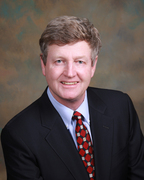Treatment
Tinnitus treatment depends on what is causing the symptoms. This may mean, for example:
- Wearing a specially made splint to help manage TMJ
- Taking antibiotics for a sinus or ear infection
- Removal of wax from the ear canal
Therapy aims to eliminate or reduce bothersome sensations. Treatment may include:
Medication
Antidepressants may be helpful in some patients. If Meniere's disease (a relatively common cause of tinnitus) is diagnosed, medications specific to that disorder may be prescribed.
Other mediations include valium .
Mechanical Devices
Devices include:
- Hearing aid—sometimes relieves tinnitus and improves hearing in some people with hearing loss
- Tinnitus masker—a device that emits a low level of white noise to help cover up the internal sensations and block out external noises
Lifestyle and Self-care Measures
Measures to discuss with your doctor if no cure or specific treatment is available include:
- Learn and practice stress management and relaxation techniques.
- Biofeedback may help. Biofeedback teaches people how to control body functions they normally do not think about.
- Consider seeing a counselor to develop new coping skills and relaxation techniques.
- Consider joining a support group .
- Avoid anything that makes tinnitus sensations worse, such as:
- Exercise regularly to improve circulation.
- Make time to relax and get enough sleep .
- Playing a radio or a white-noise machine for about 30 minutes at bedtime may help relieve the ringing sensations at night.
Surgery
Surgery may help relieve certain causes of tinnitus if the cause of the tinnitus is treated.
- Tinnitus caused by a tumor frequently subsides after the growth is removed.
- If the tinnitus is due to wax build-up, it can be relieved by cleaning the ears.
- Abnormalities in blood vessels which lead to tinnitus can sometimes be corrected with surgery.
- Surgery may also be an option for patients with Meniere's disease, but is usually performed only for disabling dizziness.
Please be aware that this information is provided to supplement the care provided by your physician. It is neither intended nor implied to be a substitute for professional medical advice. CALL YOUR HEALTHCARE PROVIDER IMMEDIATELY IF YOU THINK YOU MAY HAVE A MEDICAL EMERGENCY. Always seek the advice of your physician or other qualified health provider prior to starting any new treatment or with any questions you may have regarding a medical condition. Copyright © 2024 EBSCO Publishing All rights reserved.


 What Causes Ringing In The Ears? - Dr. O'Leary (VIDEO)
What Causes Ringing In The Ears? - Dr. O'Leary (VIDEO)